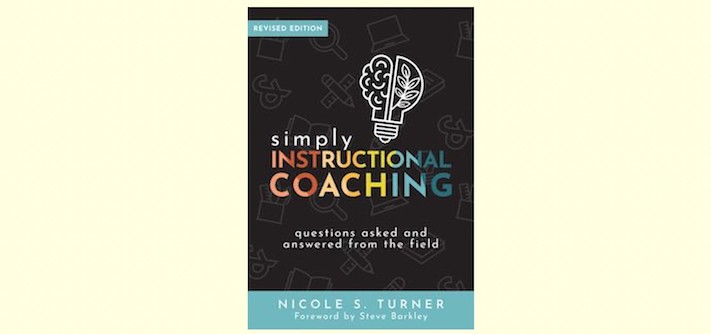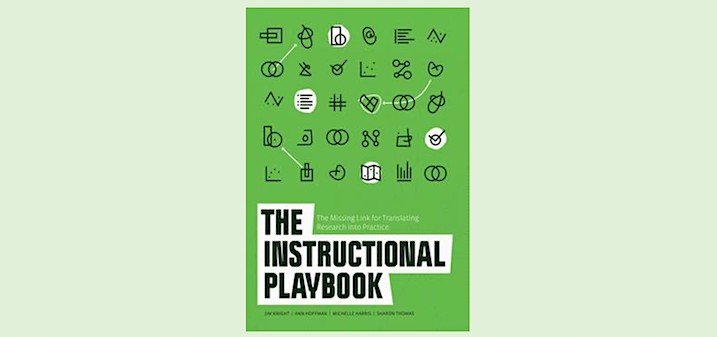Tagged: instructional coaching
Building small but mighty habits that we commit to without having to overthink what we’re doing is a far more effective and lasting approach to not just getting each day done and dusted, but to also retaining feelings of accomplishment and productivity, writes Miriam Plotinsky.
The intended audience for Simply Instructional Coaching may be teacher coaches, but Nicole Turner also offers thought provoking questions for administrators as they assemble a coaching program. An ideal read for those looking for a pragmatic, not overly technical, analysis.
Author and expert on classroom questioning Dr. Jackie Walsh partners with instructional coach Emily Brokaw and content-area teacher Anna Salazar for a new blog series exploring questioning strategies that strengthen teaching practice and empower students to self-assess and build knowledge.
With increasingly limited time in schools to support staff and students, curating a collection of concise strategies can facilitate deeper coaching conversations to improve the craft of teaching. Teacher and coach Amy Tucker has found a timely resource in The Instructional Playbook.
The inquiry-fueled methods that pique student interest, invite critical thinking, and support deep learning can also bring joy and discovery to instructional coaching. Pam Koutrakos shows how collaborative inquiry-based coaching cycles can yield powerful results for everyone.
In her first year as a team leader, teacher Katie Durkin understands she has a lot to learn. But she’s already come to understand that effective leadership means building relationships, trust, and community among colleagues – with student success as the guiding principle.
Community-centered instructional coaching reflects the idea that we all deserve to feel competent, confident, and fulfilled in our daily work, writes Pam Koutrakos. Ongoing, job-embedded professional learning that capitalizes on the spirit of community yields more buy-in.
While supervision has a place in schools, the purpose is not to improve instruction, writes principal and author Matt Renwick. Leading like a coach supports teaching and learning, and principals will be in a prime position to do this vital work if they develop three coaching skills.
When administrators use their instructional coaches effectively, writes AP DeAnna Miller, they can watch the culture in their buildings shift to one of positivity and engagement. Without clear guidelines and indepth PD for coaches AND leaders, expect mistrust and dissent.
John Campbell and Christian van Nieuwerburgh look at four broad areas of formal and informal coaching: student success and well-being, educational leadership, professional practice, and community engagement. A helpful, quick read, says teacher and mentor Alex Valencic.



















